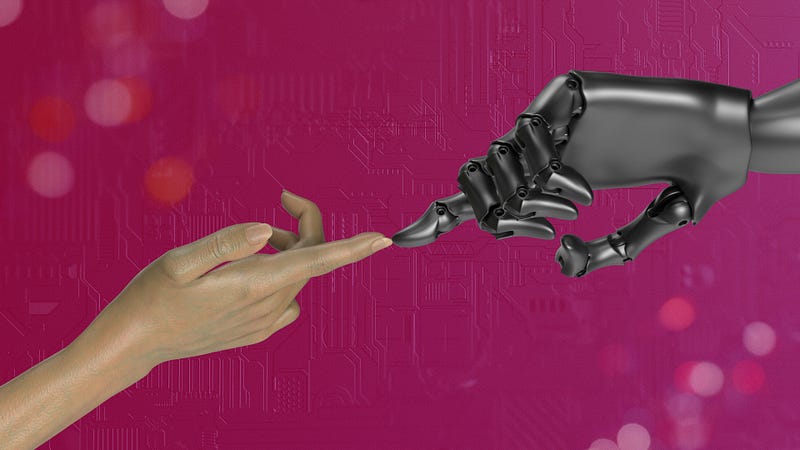# Embracing AI in My Writing Journey: A Personal Reflection
Written on
Chapter 1: The Call to Action
My journey into the world of Artificial Intelligence (AI) began when a Black woman encouraged me, urging, “Don’t get left behind.” This message resonated deeply, particularly for women of color and those navigating certain life stages. It felt like a mission, and I was ready to embrace it.
Initially, I started with minor tasks that evolved into more complex responsibilities like data analysis and managing spreadsheets. I utilized ChatGPT for crafting interview questions, discovering that the quality of my input directly influenced the relevance and clarity of the responses.
When I began to write, I relied on the AI to enhance my articulation. Although I consider myself articulate and capable of converting my thoughts into coherent sentences, writing for an audience with discerning reading skills posed a different challenge.
After completing my drafts, I would input the text into ChatGPT, eagerly awaiting its enhancements. This became a frequent practice in my early writing days.
However, I soon realized that the AI did not resonate with my unique voice.
I genuinely appreciate my own way of expressing myself. My language reflects a blend of my technical expertise, my ADHD, my vibrant energy, and the essence of the 10,000-hour rule popularized by Malcolm Gladwell. According to this principle, dedicating 10,000 hours to a pursuit leads to expertise, and I’ve certainly invested that time in verbal communication.
Writing should mirror the author's voice; it encapsulates their thought processes and interactions with their audience. Unfortunately, ChatGPT struggled in this regard.
I found myself in imaginative debates with the AI, insisting, “I believe I articulated that better!” or “This doesn’t capture my essence at all!”
As I honed my voice and developed my writing style, my reliance on ChatGPT diminished. The AI simply couldn’t grasp my unique expression. In fact, it highlighted just how much I value my writing style. Even though I might not be the best writer (let’s face it, I’m far from it) and have only received recognition once, I cherish the way I communicate.
When I write, I am verbalizing my thoughts, blending formal and informal tones seamlessly. I might adopt a managerial perspective in one sentence and shift back to my nostalgic Gen X humor in the next.
Don’t even get me started on my penchant for humor! I find a way to infuse it into almost every situation, even the most serious topics. It’s just part of who I am.
ChatGPT could never replicate that.
While Artificial Intelligence signifies remarkable technological progress, it can never replace the authenticity of genuine human interaction.
Now, regarding my choice to gender the AI—it's simple. The name "Chat" sounds a lot like "Chad," and it’s oddly satisfying to envision having a male assistant. It feels empowering to flip the script for a change.
Chapter 2: The Intersection of Technology and Authenticity
Section 1.1: Reflections on AI's Role in Writing
The integration of AI in writing can enhance productivity, yet it raises questions about authenticity and personal style.
Subsection 1.1.1: Finding Your Voice

Section 1.2: The Value of Genuine Communication
Authentic communication is irreplaceable, and while AI can assist, it cannot replicate the nuances of human expression.